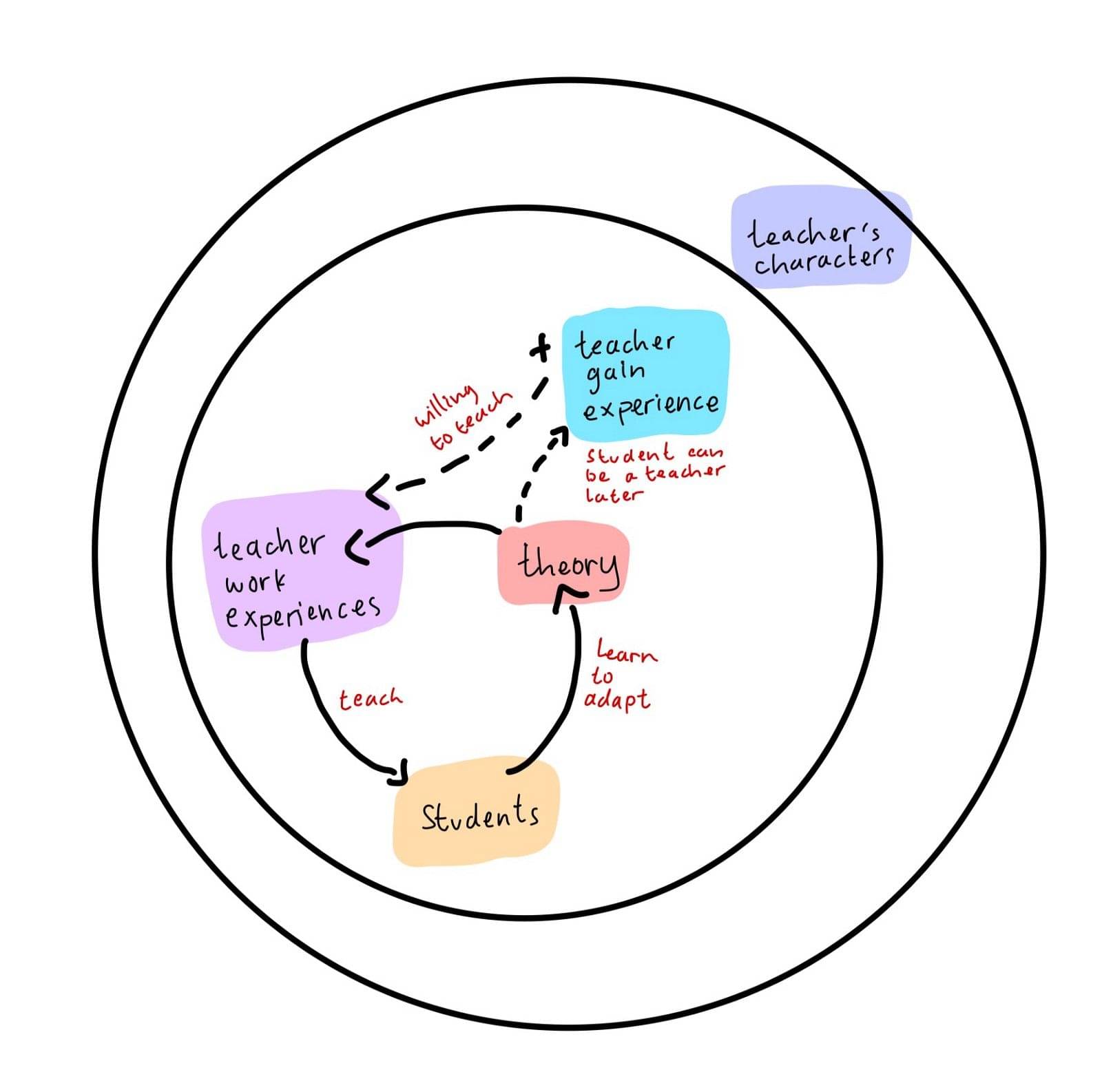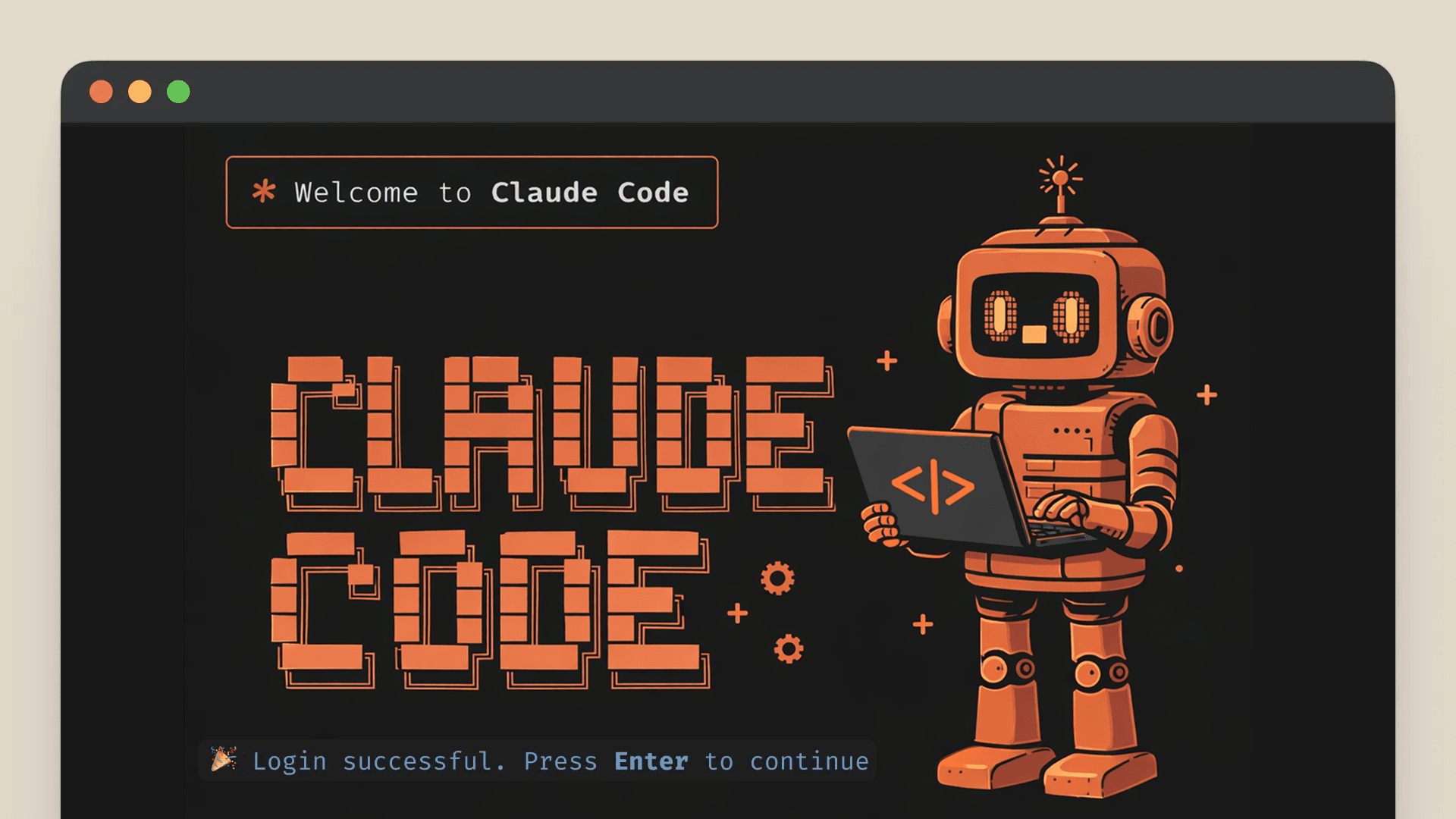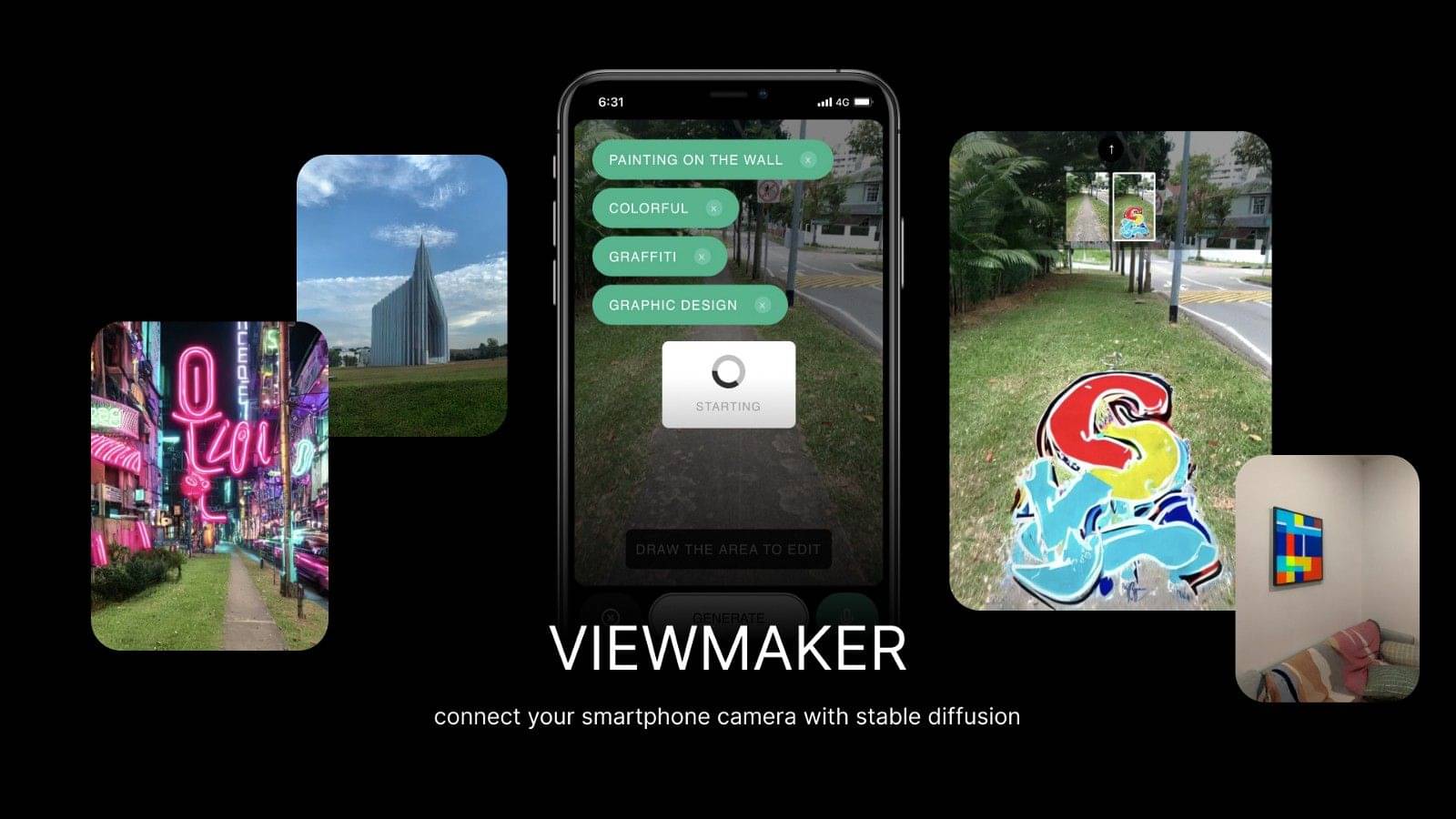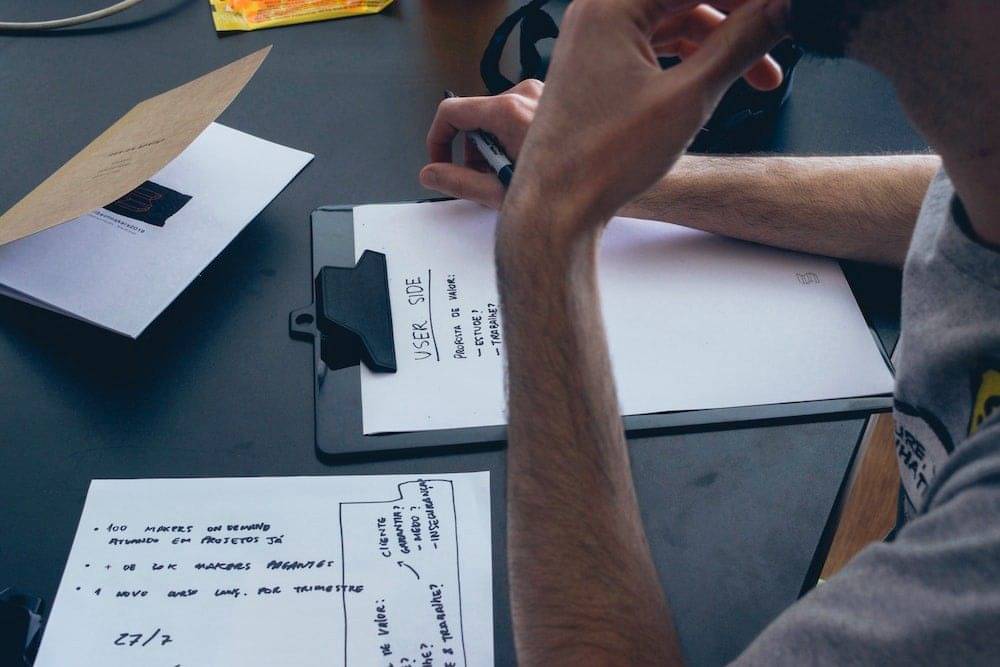7 Characteristics of a teacher that can make teaching UX more effective
It’s very important for a teacher or mentor to have a passion for it, as much as teaching or mentoring is not just about the teachers themselves. Instead, it’s about the students, mentees or participants. To clarify, the term ‘teacher’ in this article includes both ‘teachers’ and ‘mentors’, and ‘students', ‘mentees’, or ‘participants’ as students.
We can see similarities between teaching and nurturing in day-to-day life, like for example in parenting (in most cases it’s even harder 🙄). We don’t focus on ourselves as parents. Instead, we focus on what to give to our kids while nurturing them. However, in this business-focused digital industry, it’s hard to balance business and giving, right? Especially in the tech community or tech environment.
There is also a silly debate about the term ‘Rockstar’, such as ‘Rockstar designer’. Does it mean that when they give a talk at a conference, they look like a rockstar on stage? No! It’s totally different. Well, maybe yes...people commonly look at us in a room or place in a spotlight position, but as teachers. Just like teachers in the classroom, as our experiences at school when we were kids, in elementary or high school. That’s it. No one thinks the teachers are rock stars, right? Keep this in mind when you are teaching.
Effective learning
There was One of my students from my online course gave a testimonial which said that my course can help him finish the task in his BootCamp. That sounds positive, although maybe too positive. Bootcamp is more expensive, but why does he still need my course to finish the task? I don’t blame anyone here, there must be something I don’t know. I wouldn’t blame the mentor/teacher who I’m sure is a professional designer, but I'm not sure about the BootCamp organizers. They should be open with the design practitioner about the method used and what to give to the student, moreover if the payment is so expensive.
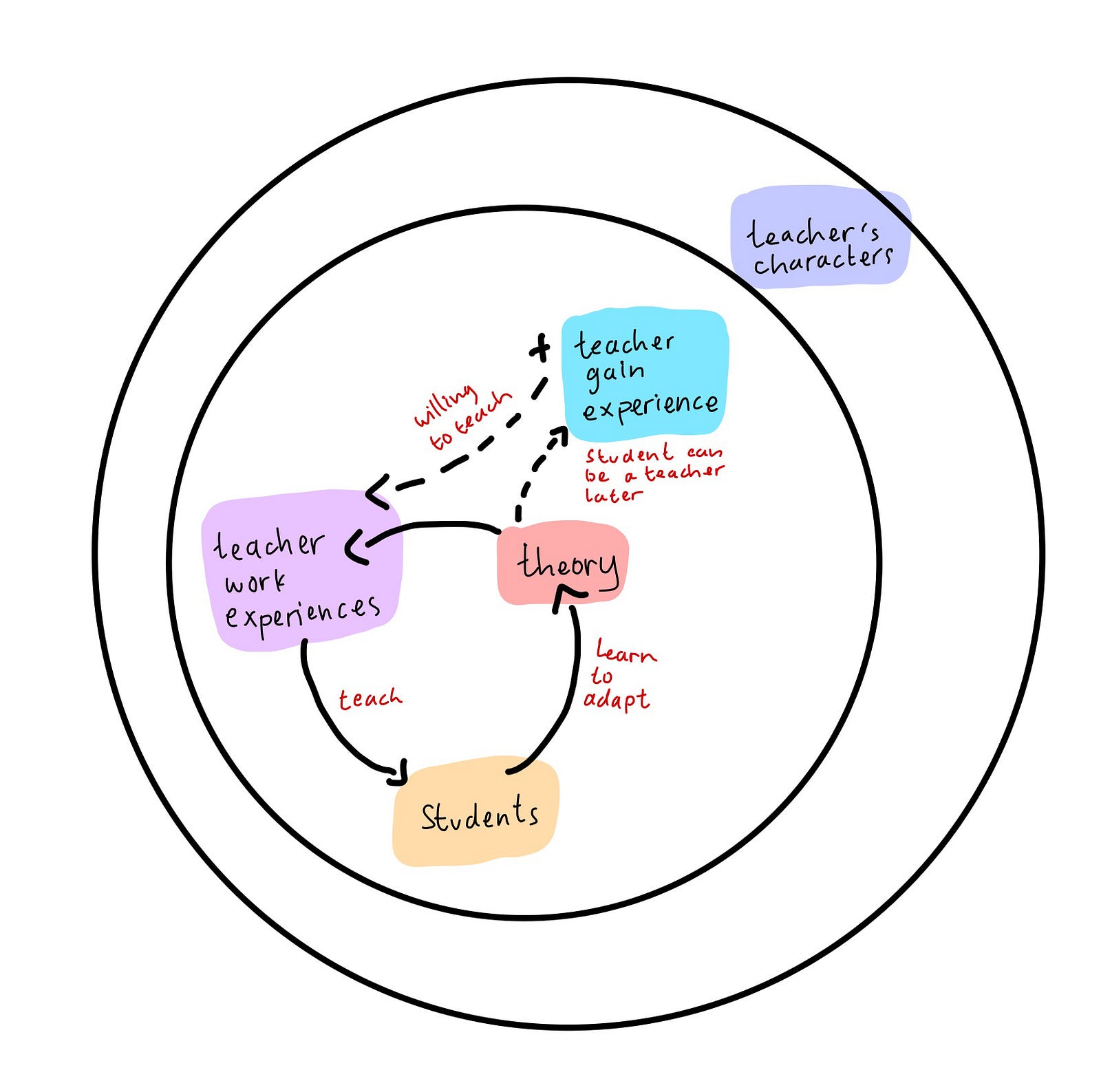
Characteristics of teacher
Based on personal experience, I have some suggestions on what the ideal characteristics of a teacher (in this case, about UX/Product design educator) might be in giving the student an effective learning experience. Whether for the online course, offline workshop, BootCamp, webinar, talk show, content creator or even 1 on 1 mentoring. These characteristics can impact how we teach and how we create and deliver the materials.
1. Wholehearted
Yes, it might be able to give us extra money, exposure and experience and also look better on the CV. But we need to think and feel that this job/activity is about giving. It’s ok to choose which platform we want to teach in, for example just for the sake of our self-branding or anything. Just be prepared to put in a lot of energy and time, as well as sacrifice more than what you get and make sure that you’re okay with that and enjoy it. Burnout might happen (it happened to me), and that’s normal as long as we don’t take it out on any students because of our problems.
2. Passion
We do really like sharing and teaching and not only when we already have a high title. We keep writing about our experiences since we were ‘nothing’ and of course, we only share what we have done ideally (writing is one of the indicators that someone has a passion for teaching). Don’t get me wrong, I’m still ‘nothing’ until now, there are always people who are better than us. I mean we are doing it not because people are doing it or not just for the sake of self-branding.
3. Not a snob
Check this link below:
3 Ways to Avoid Becoming a Snob - wikiHow
We may want to motivate other people or our students. But be careful, when talking about your salary, and perks in the workplace (this is hard I know since the company itself often shares this without thinking about people’s feelings. You know the ‘life at…life at’, while they keep silent when they need to layoff some people). Especially if what you’re talking about is the perks of becoming a high leader, while all your mentees or followers are not bosses to be. It still looks normal I think if we share the perks as employees, let’s say to motivate students or for employee branding like this 🤔 (despite the ‘firing’ part).
This is “a day in the life of a Twitter employee.” No wonder @elonmusk is firing 75% of them pic.twitter.com/cAHOuni765
— Libs of TikTok (@libsoftiktok) October 26, 2022
But if we were someone in a high position and share our perks in the workplace (but not even as the entrepreneurs who works and stands on themselves to get everything they have) with the people/followers who mostly are not bosses to be and we are a teacher or a mentor as well, then I wonder what it looks like when we are teaching. Maybe this is too deep but worth thinking of, hopefully.
4. Being honest
Honest about the real work, in reality. We need to tell students that the theories that we’re teaching don't always work. Also, tell them why we need to teach them about it. Tell them that this method A and B is not always easy to be applied in real work situations. There was a student in a one-day workshop who asked the teacher, ‘So what are we gonna do about this method at work?’. The mentor said, “Just apply it within your team.’ Well, that makes sense logically, that’s why we learn it, right? But the mentor must have told them the obstacles behind it which I'm sure they already know as the expert and they need to tell the students how to overcome it.
Besides that, we need to give students what they really need. They don't really know what to learn and what they need. Most are still figuring it out. As teachers, don’t think they are stupid just because they don’t know what to learn and need, especially if it’s paid. Give them something that they really need for work. Mostly in the digital community, people are willing to learn tech to get a job! So give them what they need. Don’t be too lazy or stingy. They might not realize whether they learn enough to be prepared to enter the industry or not from what we teach. That’s the job of teachers especially in tech to guide them into the industry, not just teaching A and B partially in the minimum effort unless it’s free. Even when it’s free, it depends on the purpose. If I teach something for free to support those who are laid off or in a pandemic situation, it doesn’t mean I should make the mini material with little effort.
5. Talk less and do more
Sounds cliche but this will help and we cannot underestimate this part just because we heard this so often. Don’t criticize teaching so much if you've never been in a teaching position before. Although mentioned above that 1 on 1 mentoring can be seen as teaching here, teaching and 1 on 1 mentoring are hugely different. They might have similar goals, to improve and help the mentees, but the method and challenges are hugely different. And IMO, also don’t compare teaching UX/tech with teaching elementary school subjects or homework or even teaching music equipment like some of us did when we were younger. The spirit could be the same, but it’s different technically.
6. Push ourselves to learn especially from work experiences.
Basically, we teach what we do in the workplace. So theory is not enough. Not enough doesn’t mean we don’t need to teach the theory at all. We need to let the students learn both, at least it can be covered in the consultation sessions.
Theory should not be something separate from their work, but intimately connected to the work they are making in their own practice, and the effect it has on the world. — Jarrett Fuller
This is something that I’m struggling with, though since I have some limitations in managing time with family. However, what I’m trying to cover is the reality at work and how to face it on other platforms such as blogs, and social media about UX or 1 on 1 mentoring outside the course. It means separate spaces which are not ideal, but at least I know that this is the trade-off that I should take so far.
When I was working at a small digital healthcare company remotely, I didn’t have many challenges as a designer. I worked there for 3 years while nurturing my younger son and that’s very helpful. Regardless of the fewer challenges, maybe at least it was because I worked for 7–8 years before 😁 so there was always something that I could share about design works so far, but of course, I need more and more challenges to learn after that. After my younger son turned 5, I moved and was looking for another opportunity that was more challenging, regardless of the lay off and economic situation, but I learned a lot. One of the reasons why I wanted more challenges at that time was to learn so that I could share more insights about the works whether to the students or non-students.
7. Use the power wisely
Enough said that it would be dangerous if a dictator political leader taught people. We can imagine if this does happen in tech.
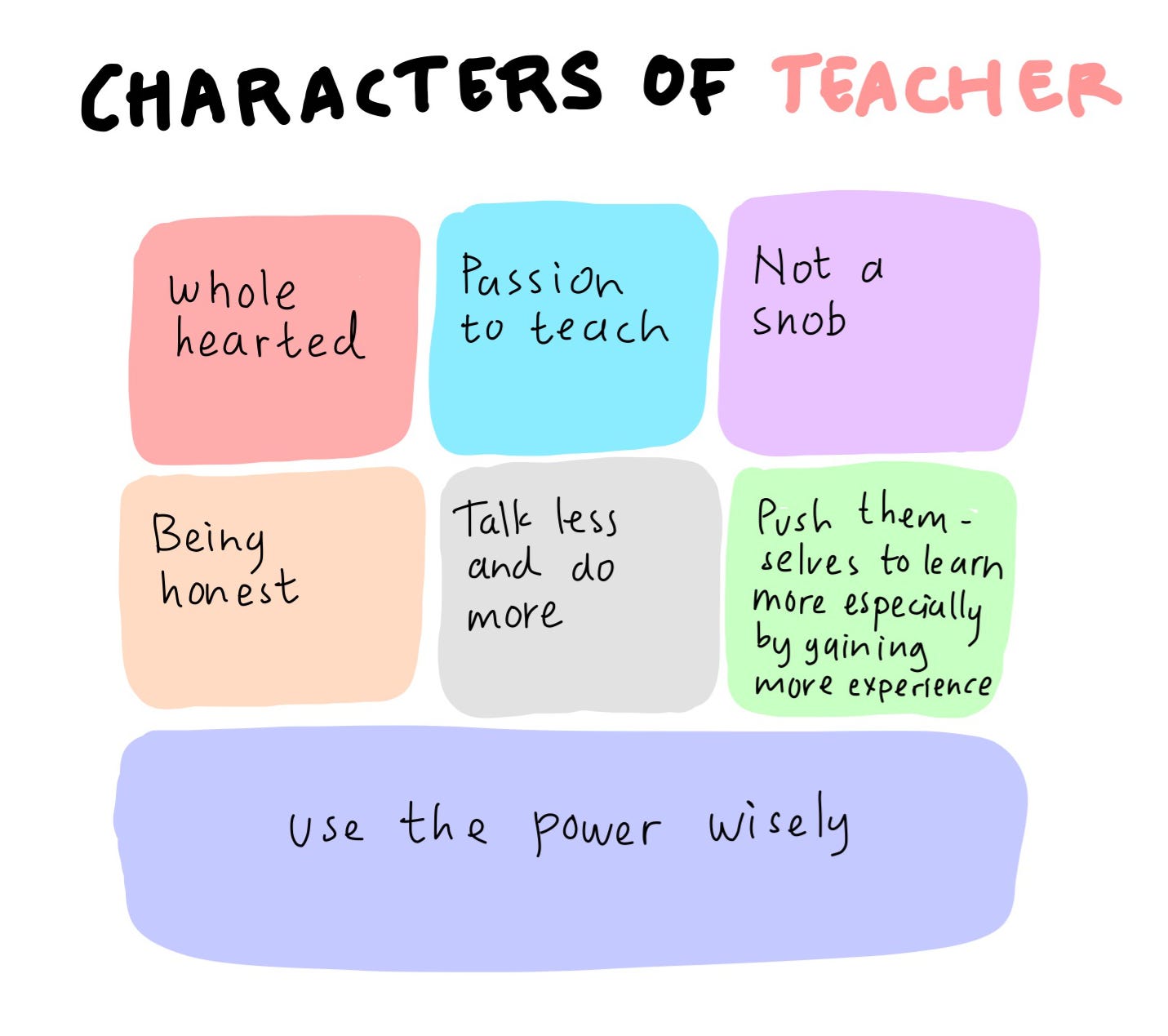
Those are the characteristics which I’m thinking can be helpful when teaching, especially teaching design in tech where money, self branding, and arrogant leaders do exist among us. It doesn’t mean I have it all, but I’m trying my best. If you have a passion for teaching or if you know of other characteristics that a teacher should ideally have, you can add in the comment below :)
All opinions are my own here. Some quotes and links to references I put there are to support the ideas.
